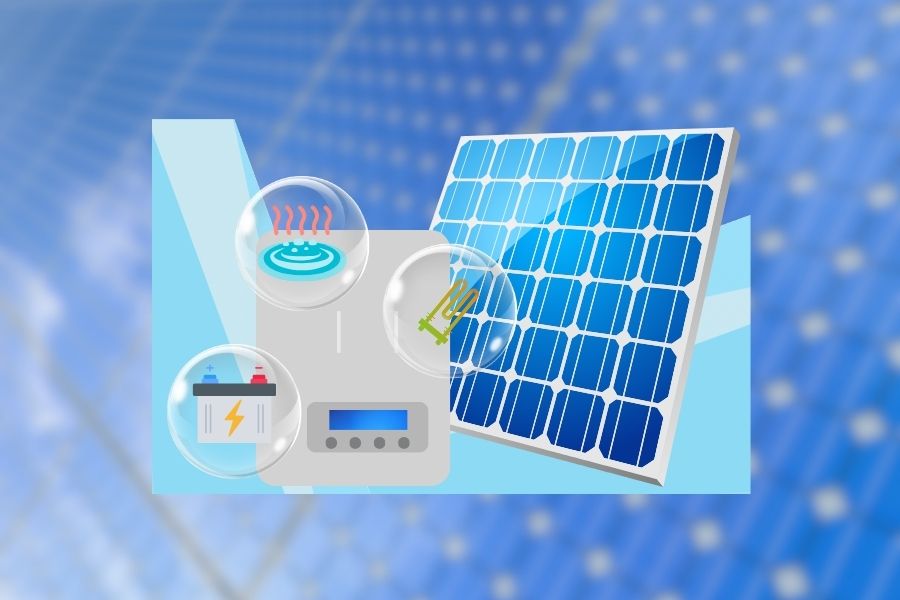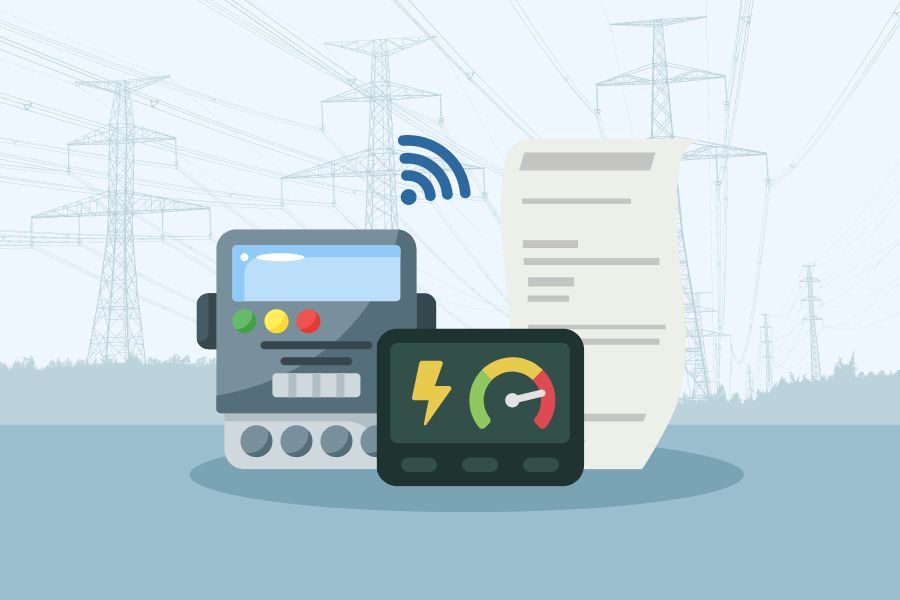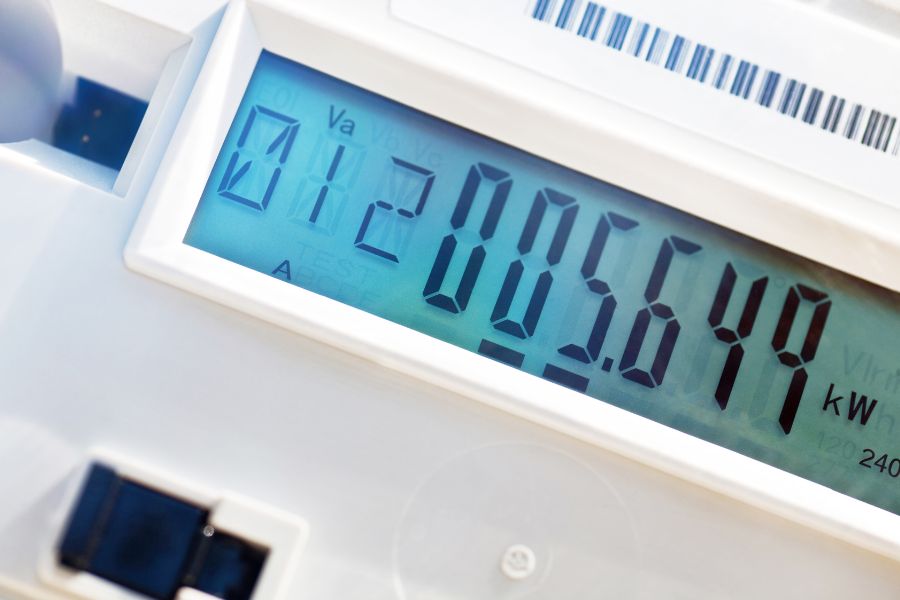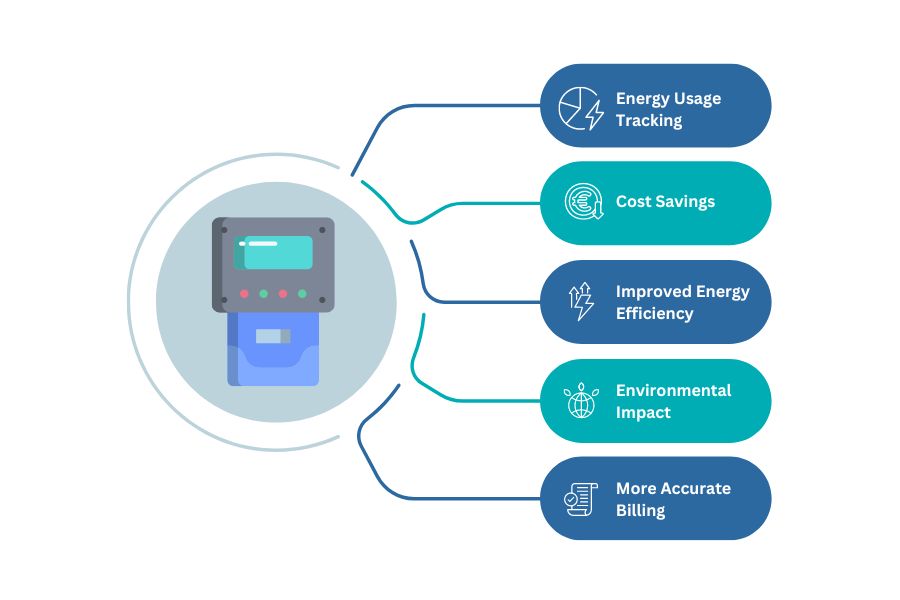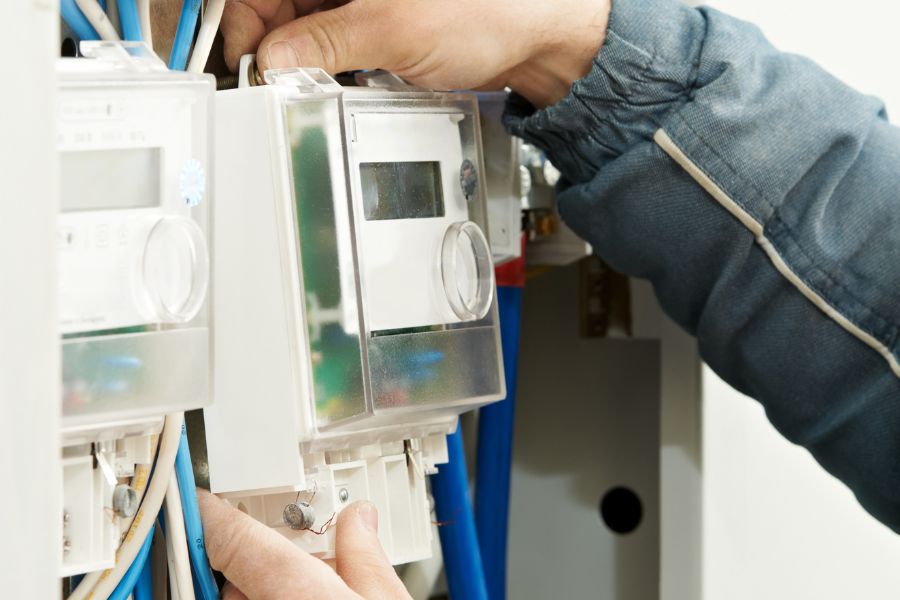Harnessing the full potential of your solar system requires more than just photovoltaic (PV) panels; it calls for a solar diverter. Serving as an intelligent manager of your solar energy output, these devices ensure the efficient use of excess electricity produced by your solar setup, diverting it to practical uses such as water heating or battery charging.
Consequently, businesses employing a solar diverter realize significant reductions in electricity costs while maximizing their self-consumption of solar power.
Furthermore, their integration promotes energy independence, less reliance on traditional power sources, and improved sustainability, positioning them as crucial components for optimizing the functionality of a solar system.
Whether you are a homeowner, a business owner, or someone interested in renewable energy solutions, this article will provide the knowledge you need to understand and embrace solar diverters in Ireland.
What Is a Solar Panel Power Diverter?
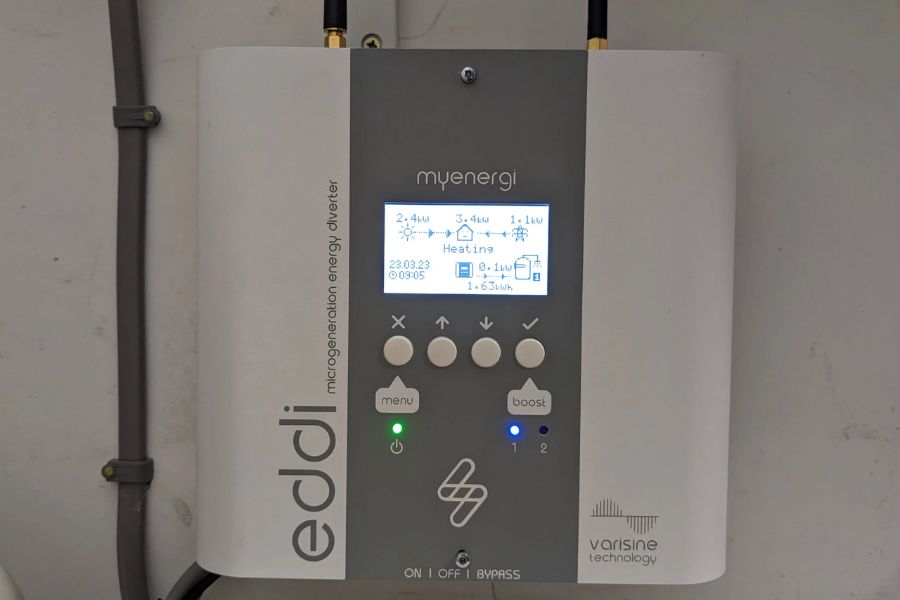
A solar panel power diverter, also known as a solar diverter or solar energy diverter, is a device that optimizes the utilization of solar energy generated by PV solar panels.
It works by diverting excess electricity not immediately consumed in the building to alternative uses, such as heating water or charging batteries.
By doing so, a solar panel power diverter ensures that people utilize the surplus energy efficiently rather than being wasted or exported to the grid.
It allows users to maximize their self-consumption of solar power, reduce reliance on traditional energy sources, and save on electricity bills.
Types of Solar Diverters
Dump Load Diverters
Dump load diverters redirect excess electricity a solar PV system generates to resistive loads, such as heating elements. That helps prevent overcharging batteries in off-grid systems or reduces grid export in grid-connected setups.
Water Heating Diverters
These diverters prioritize utilizing surplus solar energy to heat water. They divert excess power to an immersion heater, allowing homeowners to maximize solar energy for hot water production.
Battery Charging Diverters
Battery charging diverters can charge batteries with extra solar power. In addition, they ensure that any excess energy efficiently stays in batteries for later use. It enables homeowners to rely on stored energy during periods of low solar production.
How Does a Solar Panel Power Diverter Work?
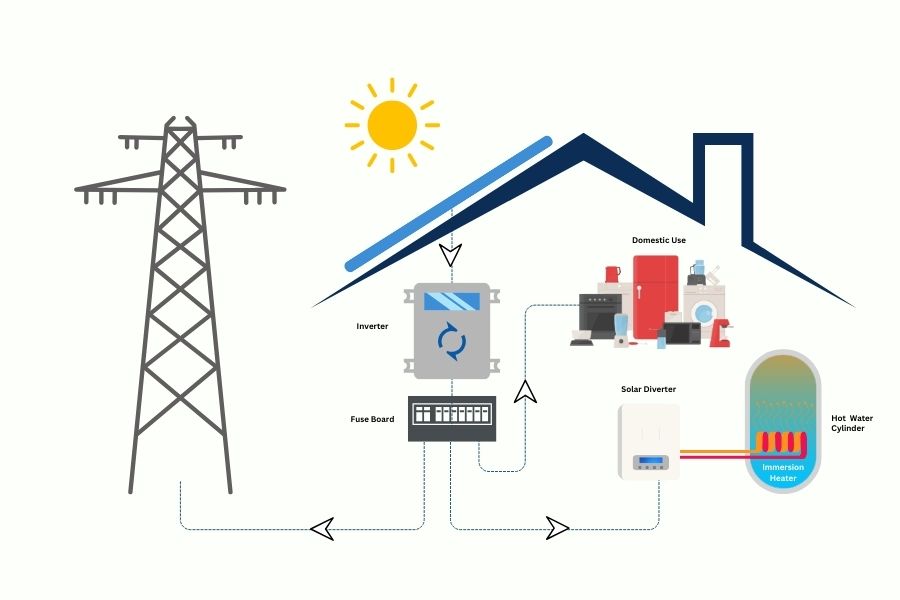
The solar panel power diverter accurately detects the real-time generation of solar power and consumption within the house. When the production of solar power exceeds the power usage, the diverter intelligently directs the excess power toward the immersion heater. It ensures efficient utilization of the surplus solar energy for the heat pump, maximizing the benefits of the generated power.
How Is a Solar Diverter Fitted?
To facilitate the functioning of the solar diverter, a compact electronic box is installed near the hot water cylinder, typically nearby. This box then connects in line with the power supply of the immersion element.
Additionally, two Current Transformer (CT) clamps are affixed—one around the AC cable of your solar PV system and the other around the main incoming mains supply.
These clamps accurately measure the electrical currents flowing through the respective cables, providing essential information for the solar diverter to operate effectively.
How Much Money Can You Save With a Solar Panel Power Diverter?
The amount of money you can save with a solar panel power diverter depends on various factors. They include your solar PV system’s size, energy consumption patterns, and the cost of electricity.
A solar panel power diverter can significantly save your electricity bills by maximizing the self-consumption of solar energy and reducing grid dependence.
On average, users can save anywhere from 20% to 50% on their electricity costs, making it a worthwhile investment in the long run.
How Much Energy Can My Hot Water Cylinder Store?
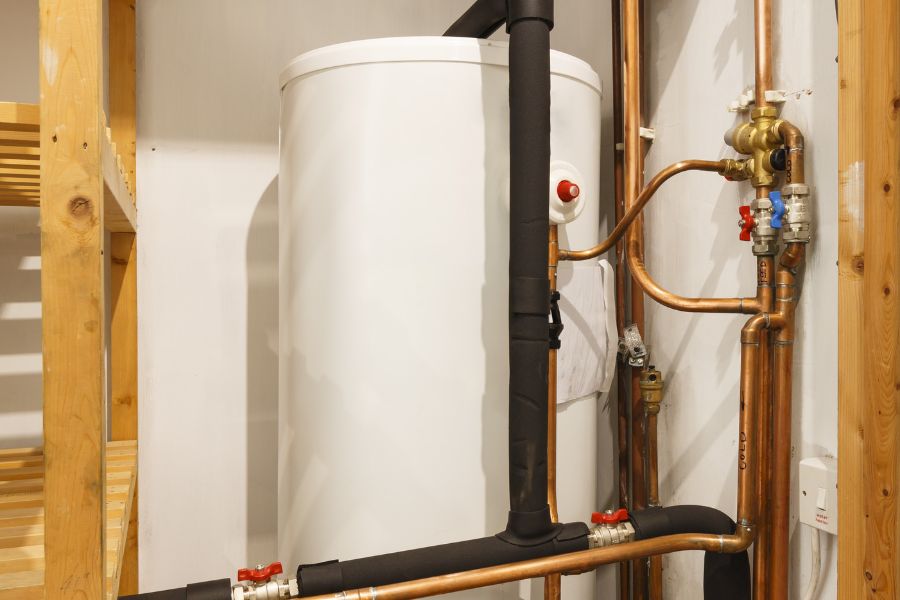
The energy storage capacity of your hot water cylinder depends on its size and insulation. A standard hot water cylinder typically can store around 100 to 300 liters. However, the specific capacity may vary based on the model and installation. Therefore, it’s essential to consider the cylinder’s storage capacity when planning to utilize a solar panel power diverter for heating water. In addition, it ensures it aligns with your household’s hot water demands.
How Does an Immersion Diverter Know When I Am Generating Too Much Electricity?
An immersion diverter determines when you are generating excess electricity by continuously monitoring the power output of your solar panels and comparing it with your household’s electricity consumption.
When solar generation exceeds the immediate consumption needs, the diverter recognizes the surplus and redirects it to alternative uses, such as heating water or charging batteries.
This intelligent monitoring and diversion process ensures practical usage of excess electricity, preventing wastage or exporting it to the grid.
Can I Still Use My Immersion as Normal for Hot Water?
You can still use your immersion as usual for hot water, even after a solar panel power diverter installation. This is because the solar diverter operates intelligently, directing excess solar power to the immersion heater only when available.
When solar generation is insufficient, or at night, the immersion heater can still function conventionally, using grid electricity or other heating methods to provide hot water.
It ensures that you consistently have hot water, regardless of solar power availability.
Can a Solar Immersion Diverter Work With Batteries?
Yes, a solar immersion diverter can work with batteries in a solar PV system. The excess solar power the house does not consume immediately can divert to charge the batteries.
It allows for efficient energy storage, ensuring no wastage of extra power. Furthermore, when solar panels are not generating enough electricity, one can utilize the stored energy in the batteries. The energy can power the immersion heater or other household appliances, providing uninterrupted hot water and reducing reliance on the grid.
How to Install a Solar Panel Power Diverter?
The installation of a solar panel power diverter typically involves a few steps. First, a small electronic box is installed near the hot water cylinder, close to the immersion element power supply.
This box then connects in line with the power supply. Next, fit two Current Transformer (CT) clamps—one around the AC cable of the solar PV system and the other around the main incoming mains supply.
These clamps accurately measure the currents in the respective cables. Once the diverter is connected, it can be configured and calibrated according to the specific system requirements. It’s advisable to consult a professional installer for safe and accurate installation.
Conclusion
Solar diverters are the superheroes of the renewable energy world, ensuring that the power generated by solar panels doesn’t go to waste. They work tirelessly to optimize self-consumption, reduce reliance on the grid, and harness the free energy from the sun.
Solar diverters make every watt count, whether heating water, charging batteries, or powering appliances.
By implementing a solar diverter, you contribute to a greener planet. In addition, you enjoy the benefits of lower electricity bills and increased energy independence. So, embrace the power of solar diverters and let them guide you toward a brighter, more sustainable future.
